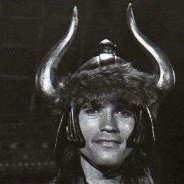Amateur dentists in Indonesia make a shady living
-
Recently Browsing 0 members
- No registered users viewing this page.
-
Topics
-
-
Popular Contributors
-
-
Latest posts...
-
33
Crime Armed Korean Arrested After Standoff at Pattaya 7-Eleven
Yeah, it's a Chinese dictat from Mr Xi. Don't use the Chinese description wherever possible, just say foreigner. Good it came out this time. -
143
What happened to Rock n Roll
Elvis was an innovator, like the Beatles, Michael Jackson, Sabbath and Stones, but many other artists had (have) a lot more musical talent. His music, like the Beatles, was simple, poppy and easy to listen to and enjoy, much because of the dance rhythms. Many people love music they can move to, which doesn't mean it's instrumentation is the best but just easy to enjoy. There are musicians like Mark Knopfler,(Dire Straits), Warren Haynes, Derek Trucks, Joe Bonamassa, Mostly Autumn, Pendragon, Gordon Lightfoot, Bob Dylan (lyrically), Paul Rodgers, Freddie Mercury (Queen), Kansas, and many, many more who wrote and perform much better, more intricate music than Elvis did. -
4
AliExpress is worse than I even feared
I also had a painful experience with them. The seller wanted to refund me in full without me sending the item back, but AliExpress wouldn't let them. So the seller had to pay postage charges on top or my refund. -
111
UK State Pension Payments to a Thai Spouse
What was misinformed about inheritance tax. Previously a pension pot we excluded. It will in a year or two's time be included in the estate for inheritance tax and therefor be taxed at 40% if the estate exceeds the allowance. When the beneficiary draws the pension then 20% tax will be deducted. I suppose if they had no other income they can offset that against their allowance. A Thai person I assume would still have to pay the tax. What is incorrect about what I said? -
17
Tourism Thailand Struggles as Vietnam Prioritises Local Tourism
Apart from some rip off often heard from touristy areas, I haven't really experienced hate of foreigners myself. Have been here for the past 2 decades. -
116
Microsoft's Windows 11 rant - it's a con!
Since about 20 years I use a notebook (Lenovo) running on windows and a mac as desktop. I give them both around 8 years and then just change the hardware -> buy a new one. I once went through changing the harddisk on my notebook because it didn't start up anymore correctly. I was lucky and was able to save all of the datas, had to build out the harddisk an connected with an adapter onto my external storage device. Since then I make on my Mac as also on my Windows Notebook every month a full backup onto external harddisks. It's woth it, but one only realizes that when the tool (regardless if Mac or Win) you use every day suddenly says "nada".
-
-
Popular in The Pub









Recommended Posts
Create an account or sign in to comment
You need to be a member in order to leave a comment
Create an account
Sign up for a new account in our community. It's easy!
Register a new accountSign in
Already have an account? Sign in here.
Sign In Now